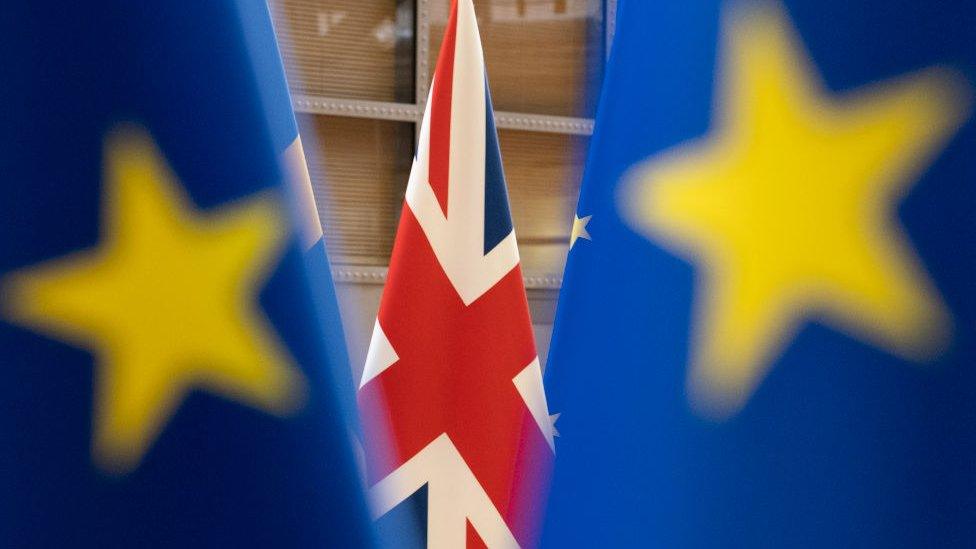Post-Brexit trade talks to continue next week
- Published
- comments

Negotiations for a post-Brexit trade deal between the UK and EU are expected to continue next week as the deadline draws nearer.
The two sides resumed talks in London this week, with a UK government source saying they were in the "final stage".
But big gaps still remain, such as on fishing access, with the UK source describing the EU's position as "wholly unrealistic".
Boris Johnson has said he is prepared to move forward without a deal.
Ireland's foreign minister, Simon Coveney said it was "quite possible [the talks] could fall apart and we don't get a deal".
But he said, while reaching an agreement would be "very difficult", it was "doable" and the coming days were "crucial".
The UK officially left the EU on 31 January, but has been in a transition period since then - following many of the bloc's rules while a trade agreement is negotiated.
That period is due to end on 31 December and if a deal is not agreed, the UK will trade with the bloc on World Trade Organisation rules - leading to tariffs being introduced on many imports and exports, which could push up costs for businesses and consumers.
Both sides say they want to avoid this outcome, but the the EU has said it will not do a deal "at any price", and Mr Johnson has said the UK will prosper either way.
If a deal is agreed, it would need to be signed off by MPs in the UK and parliaments across the EU before the end of the transition period to come into force by 1 January.
'Large differences'
Mr Johnson spoke on the phone to European Commission President Ursula von der Leyen on Saturday, agreeing some progress had been made in recent weeks after the EU agreed to discuss specific legal texts.
But Ms von der Leyen said "large differences" remained over the question of access to British fishing waters from 2021 and regulations on workers' rights, environmental protection, and state aid designed to maintain a "level-playing field".


Any talk of an end game, final stage, or make or break moment has become foolish throughout the Brexit process.
Negotiations between the two sides over a future trading relationship are, predictably, going to the wire.
But as it stands there is a deadline of 31 December, after which the UK and EU will have to operate in a very different way.
If a trade deal is agreed before then, the EU member states will each need to ratify it, along with the European Parliament and MPs at Westminster.
Given that time pressure and the big gaps still evidently separating both sides, progress is needed soon for agreement to be reached.
Nobody expects the talks to continue beyond the end of next week, so while a breakthrough doesn't seem imminent, it will have to come within days if a deal is to be done.

The extension to the talks comes after a heavy defeat for the government in the Lords over its controversial Brexit legislation.
The Internal Market Bill contains measures that overrule parts of the UK's Brexit withdrawal agreement with the EU, and the government has said it could break international law.
The Lords voted to remove the sections, but the government has pledged to reintroduce them when the bill returns to the Commons.